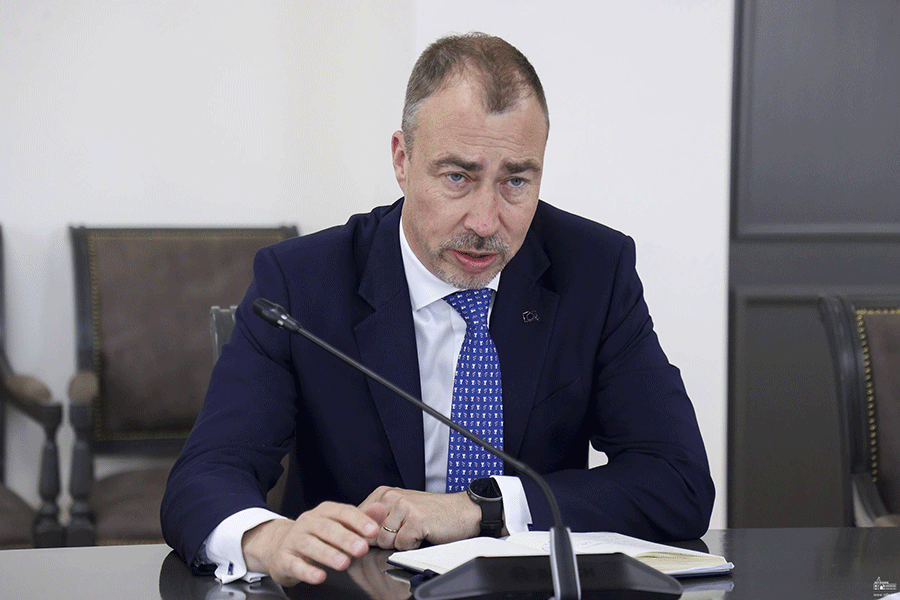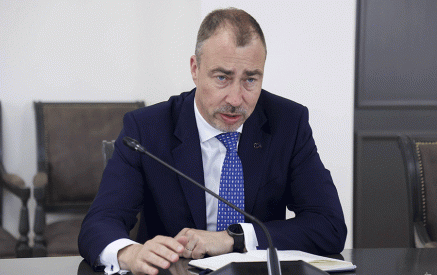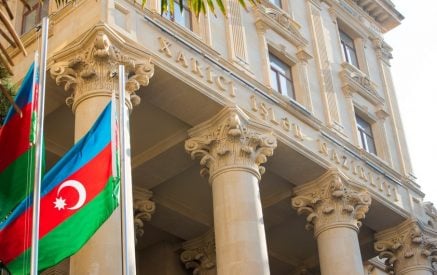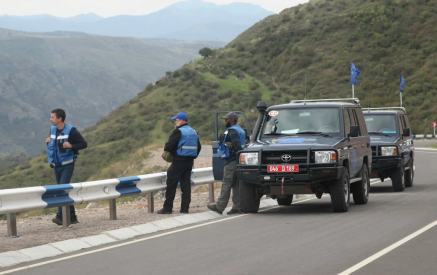Toivo Klaar, the EU Special Representative for the South Caucasus and the crisis in Georgia, provided his insights in an interview with JAMnews, reflecting on his decade-long experience in the region.
On the developments between Armenia and Azerbaijan
● How would you describe the developments between Armenia and Azerbaijan over the past few years?
It has been a mixed picture. We have seen better moments, and I do hope that we are living some of them now, but we have also seen a lot of violence with many innocent victims.
The 44-day war in 2020, the various armed clashes and larger military operations, the situation around the Lachin corridor, and not least the mass exodus of the Karabakh Armenians in September 2023 were among the most difficult situations I had to deal with.
Read also
I will always remember the exchanges I had with the victims of this violence and the stories that I heard from those who faced similar hardships in the 1990s.
At the same time we also have had more positive developments.
We have more dialogue now between Baku and Yerevan, which also the EU has contributed to, I believe. We have discussions aimed at finalising a peace agreement.
It is my hope that with political will and continued effort by all sides the page of enmity and violence can now finally be turned once and for all, for the benefit of all the peoples of the region.
On the EU’s mediation efforts between Armenia and Azerbaijan
● How would you assess the EU’s mediation efforts between Armenia and Azerbaijan, particularly the so-called “Brussels Process”?
Before the 2020 war, the EU played a much less visible role. Our – my – task was mainly to act in support of the efforts undertaken by the main international format, the Minsk Group, and its co-chairs.
After the 2020 war the EU, mostly at the request of the parties themselves, started to play a more prominent role, which culminated with the series of high-level trilateral meetings between President Michel, Azerbaijani President Aliyev and Armenian Prime Minister Pashinyan.
I believe that these meetings – in addition to efforts undertaken by other international actors – provided the two leaders with the necessary space to reach some common understandings on the main issues at stake: the peace treaty, border delimitation and demarcation, the reopening of regional economic and transport links, and humanitarian issues.
We had six meetings of the leaders in Brussels between 14 December 2021 and 15 July 2023, we had numerous high-level telephone exchanges, and we organised meetings of the security advisors here.
Combined with my visits to Baku and Yerevan, and the wider region, I believe that the EU helped create a certain framework, based on which the leaders could give the Foreign Ministers, the Deputy Prime Ministers and other key actors guidance, and steer for further negotiations.
Over the past months, the bilateral track between Armenia and Azerbaijan has managed to produce concrete positive outcomes.
The EU has welcomed all these developments, be it the 7 December 2023 joint statement on releases of detainees and COP29, or the more recent agreements on border delimitation and demarcation of 19 April 2024, with their subsequent implementation.
The latter are based precisely on the common understandings that had been reached earlier with our involvement, for instance on the unambiguous acceptance of the 1991 Almaty Declaration as the basis for the delimitation of the bilateral border.
Finally, even though we have seen more bilateral meetings recently, the EU stands ready to again step in as a facilitator when requested by the parties.
On the future peace agreement between Armenia and Azerbaijan
● Do you think the future peace treaty between Armenia and Azerbaijan could be signed soon?
As far as I know, most of the draft peace treaty has already been agreed upon. It seems to me that the only thing missing is the political will needed to reach the finish line.
We have been encouraged by the latest intensive exchanges of drafts and the recent trilateral meeting of the Foreign Ministers of Armenia and Azerbaijan with U.S. Secretary of State Blinken in Washington DC on 10 July 2024.
We firmly believe that achieving a final agreement on the remaining issues and wording is within reach.
A peace treaty and its subsequent implementation would fundamentally change the situation in the region. I believe the leaders also share this view and will undertake all the efforts needed to reach a final agreement on the matter.
However, the fact that they did not meet during the recent European Political Community summit in the UK it is also a reminder how fragile the process still is. It does not show lack of commitment by either side, but illustrates well the sensitivities associated not only with the substance, but also with the process of the normalisation deliberations.
● And if there is a peace agreement, what then?
This would be a great achievement. But agreements of course need to be implemented and so a peace agreement will only be a waypoint towards normalisation. In the end, peace is about people, and normalisation of relations must mean normalisation at the societal level.
Much of the peace process has been quite top-down, and what is ultimately needed is a genuine opening, including through cross border trade and connectivity of the region, and making peace and stability feel normal for the populations on both sides.
But for this to be possible, peace building efforts need to include confidence building and reconciliation between people to enable them to make peace with each other. I have therefore always put a strong focus in my work on confidence building, dialogue and reconciliation efforts around the official negotiation processes, and the EU has supported such activities for many years already, to promote an environment conducive for real peace.
The international community will need to remain engaged both politically and financially, also after the signature of a peace agreement. But the onus, as now, will remain on the leaderships in Yerevan and Baku to not stop half way, but to continue all the way towards a full normalisation of relations, not only between governments, but also between peoples.
On displaced Karabakh Armenians
● What are your final thoughts on the displaced Karabakh Armenians now in Armenia, many of whom still hope to return home one day?
Once again, I do hope that the page of enmity and violence can finally be turned once and for all, for the benefit of all populations in the region, including the Karabakh Armenians.
The EU has been very clear on the matter – and it is also my expectation – that the Karabakh Armenians will be part of the normalisation process and that there will be direct talks between Baku and them about their safe and dignified return to their home region.
Azerbaijan does have an obligation in this regard, which – as it seems to me – it does not deny.
The parameters and conditions for such a future need to be found and agreed through an inclusive and mutually respectful dialogue. Normalisation to me means no open wounds, and therefore this issue has to be part of the broader peace process.
Sometimes other issues are brought up in this context, such as the question of so-called “Western Azerbaijan”. For me, these are completely distinct questions that cannot be mixed.
The first is the facilitation of the return of the Karabakh Armenians to their ancestral homes, which is an obligation that Azerbaijan has. The second is the question of Armenians who used to live in other parts of Azerbaijan, including in Baku, or of Azerbaijanis who used to live in Armenia.
Naturally they should also be able to visit the places where they or their families have lived, or even to return there, if they so wish, and this should likewise be a consequence of normalisation, but that is a wholly different issue from the specific question of the Karabakh Armenians.
On the prisoners and missing persons
● Could you elaborate on the importance of humanitarian affairs for lasting peace up to this point?
To me the entire normalisation process is about people and therefore about humanitarian affairs. However, if you mean the specific question of prisoners and missing persons, then these are of course key elements as well.
One of the most moving experiences during my time as EUSR has been the release of ten Armenian soldiers from Azerbaijani captivity at the end of 2021. I felt honoured that the EU could assist at that time and that I personally could accompany those former prisoners when they were re-patriated from Baku to Yerevan on 19 December 2021.
I am deeply convinced that the release of all prisoners, good and effective cooperation from all sides on the fate of missing persons as well as on demining efforts are decisive elements for lasting peace and for definitely turning the page of enmity and violence.
And it makes me personally sad that we still did not really manage to advance further on those issues. I am certain that this will remain a key issue for my successor.

























































